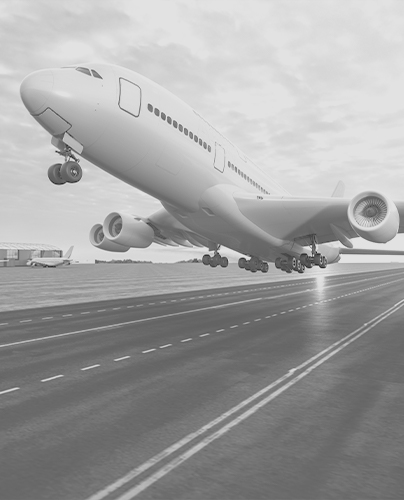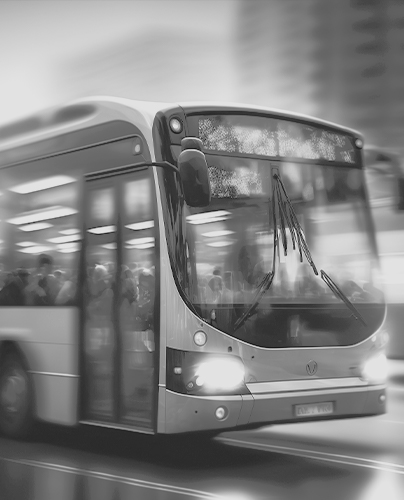 Abertura de Inscrições ao Concurso Público de Títulos e Provas visando o provimento de 1 (um) cargo de Professor Doutor junto ao Departamento de Engenharia de Transportes da Escola de Engenharia de São Carlos da Universidade de São Paulo
Abertura de Inscrições ao Concurso Público de Títulos e Provas visando o provimento de 1 (um) cargo de Professor Doutor junto ao Departamento de Engenharia de Transportes da Escola de Engenharia de São Carlos da Universidade de São Paulo
![]() Para mais informações, clique AQUI
Para mais informações, clique AQUI

Urban Transitions in Land Use and Transportation - 2024 World Symposium on Transport & Land - Use Research (WSTLUR)
We are pleased to announce that the 2024 World Symposium on Transport and Land Use Research (WSTLUR) will be held in Bogotá, Colombia from June 17-20, 2024. We seek original papers on the interaction of transport and land use from the broad set of disciplines engaged in transport and land use research.
The WSTLUR 2024 International Conference aims to bring together scholars and policy makers in transportation and land use research to share insights and ideas on how innovation and technology, are transforming urban landscapes and transportation systems in our post pandemic world. What strategies can be employed to navigate these changes? With traditional and emerging transport services operating worldwide, the 2024 Conference will also highlight the transport and land use systems in the Global South, ranging from BRT systems operating in Latin America to various forms of formal and informal mobility services co-existing in Asia and Africa.
We are specifically interested seeking papers from themes described below; however, papers outside of these themes can be submitted to the general call. Theme leaders will be in charge of the paper review and selection process. Questions about the specific themes should be directed to the theme leaders identified below. Detailed descriptions of these themes are below.
1. Accessibility analysis in practice: Bridging the gap (Ahmed El-Geneidy, Hisham Negm, and Meredith Alousi-Jones, McGill University)
2. Equity and Inclusion, spatial justice, vulnerable populations (Raktim Mitra, Toronto Metropolitan University and Kevin Manaugh, McGill University)
3. Public transport (networks), BRT, integration of public transport with cycling and land use, public transport ridership/satisfaction (Eleni Bardaka, North Carolina State University; Jesper Bláfoss Ingvardson, Technical University of Denmark; Oded Cats, Delft University of Technology)
4. Active travel and micromobility (Eva Heinen, Technical University Dortmund; Patrick Singleton, Utah State University; Dillon Fitch-Polse, University of California – Davis; Susan Handy, University of California – Davis)
5. Electric and Automatic Vehicles and alternative fuels, AVs, New technologies, shared electric mobility, Smart Cities (Dick Ettema, Utrecht University)
6. Interaction of Land Use and Transport: Spatial analyses and models (Rolf Moeckel, Technical University of Munich and Mahmudur Fatmi, University of British Columbia)
7. Travel behaviour and psychology, travel experiences and perceived accessibility (Veronique Van Acker, Luxembourg Institute of Socio-Economic Research; Donggen Wang, Hong Kong Baptist University; Jonas De Vos, University College London)
8. Emerging transportation and land use issues in Latin America and the Global South (Erik Vergel-Tovar, Universidad de los Andes, Mengqiu (Matthew) Cao, University of Westminster and Sylvia He, Chinese University of Hong Kong)
9. Post-Covid, ICT, land use, telework (João de Abreu e Silva, IST, Universidade de Lisboa)
10. Freight, city logistics and e-commerce (Leise Oliveira, Universidade Federal Minas Gerais and Rui Colaço, IST, Universidade de Lisboa)
11. Housing, Land Use and Travel (Kristina Currans, University of Arizona and Kelly Clifton, University of British Columbia)
12. Other issues in transport and land use (Dea Van Lierop, Utrecht University and Sylvia He, Chinese University of Hong Kong)
Accessibility analysis in practice: Bridging the gap - Accessibility, the ease of reaching destinations, is a comprehensive land use and transport performance measure. Accessibility has been used as a tool to promote equity through allowing different individuals to engage in valued activities such as employment, education, health, and leisure. Over the past decade accessibility measures have been adopted in some transport plans around the world. This track is seeking papers to help expanding the use of accessibility measures in practice, specifically new accessibility measures, evaluation of projects through accessibility, the use of accessibility in equity analysis, perceptions of accessibility, and the impacts of accessibility on well-being.
Equity and Inclusion, spatial justice, vulnerable populations - This theme invites scholarship that engages with the differing impacts of land use and transport concepts, policy and interventions on a range of environmental, health, and social outcomes, with a focus on equity, inclusion, and vulnerable populations. Papers may explore topics including 1) the role of sustainable and healthier transportation options in creating accessible, inclusive and just communities in different land use contexts; 2) the impact of land use planning and policy on the transportation outcomes of equityseeking and marginalized population groups; and 3) the tension between environmental austainability and social equity, related to transport and land use processes and outcomes.
Public transport (networks), BRT, integration of public transport with cycling and land use, public transport ridership/satisfaction - What is the relationship between public transport and urban form? How do new public transport systems affect the spatial patterns of urban development and vice-versa? How do different types of transit-oriented development (TOD) as well as cycling and pedestrian infrastructure promote active travel, support public transport ridership, and affect user satisfaction in public transport-rich areas? Examples of specific topics include the land-use, realestate market, accessibility, and socioeconomic changes associated with investments in the introduction of public transport systems (e.g. urban rail, bus rapid transit), the joint design of new urban areas and public transport connections, re-designing public transport services in response to post-pandemic effects, methods for quantifying residential and commercial gentrification and displacement caused by new public transport nodes, spatiotemporal changes in the use of active travel in TOD areas, and the links between TOD strategies (such as equitable TOD and mixed-use development) and public transport ridership.
Active travel and micromobility - Submissions within this theme may answer questions on the following questions:
• What types of land uses and built environments support active travel and micromobility and does this differ around the world according to local environmental, economic, and socio-cultural contexts?
• How do deployments of micromobility and investments in active transportation infrastructure affect land (re)development, residential displacement, social mobility, equity, and other societally-important outcomes?
• Non-built environment changes (e.g. the pandemic) can impact the use of our environment quickly (i.e., resulting in some empty offices/stores, quieter downtowns); How has this affected active travel and its relationship with land use?
• How can active travel and micromobility change how people view and interact with their local community?
Electric and Automatic Vehicles and alternative fuels, AVs, New technologies, shared electric mobility, Smart Cities - One of the major transitions faced in transportation is the transition from private internal combustion engine vehicles (ICEVs) to plug in electric vehicles (PEVs), which include both PHEVs and BEVs. Understanding and managing this transition calls for research into households’ decision to acquire and/or replace ICEVs with PEVs, and how their use will be different from the use of ICEVs. We welcome research investigating how these decisions are driven by social context, infrastructure and market context, but also how the transportation system and the grid interact in a systemic way. In addition, we welcome research into the relationship between electrification of private vehicles and other innovations, such as shared mobility and autonomous vehicles.
Interaction of Land Use and Transport: Spatial analyses and models - Land use and transport systems affect each other. This track welcomes submissions that analyze this interaction spatially with methods ranging from GIS, LUTI models, urban informatics, machine learning to survey research. Of particular interest is research on the spatial and temporal impacts of online/in-home activities on travel behavior and household/firm location choice.
Travel behavior and psychology, travel experiences and perceived accessibility - Research on the interaction between land use and travel behavior often rely on objective information such as travel costs, travel time, or the built environment. However, today there is increasing evidence that subjective factors such as perceptions, attitudes, and values are equally important to consider. This shows the importance of gaining insights into alternative psychological mechanisms in order to improve our understanding of land use-travel behavior interactions. Examples of potential topics include:
• The role of perceptions, attitudes, values and norms in decisions about travel and land use, in particular daily travel behavior, residential and workplace location decisions;
• Interactions between individual subjective factors (e.g., individual perceptions, attitudes and values) and social norms;
• Potential mismatch between objective indicators (e.g., objective accessibility) and subjective factors (e.g., perceived accessibility) and its consequences for daily travel behavior;
• How individuals experience their travel time and how travel time is not always ‘wasted’ time;
• The role of intra-household interactions in the land use-travel behavior connection.
Emerging transportation and land use issues in Latin America and the Global South - Cities in the global south have experienced rapid urban growth dynamics generating challenges and opportunities in terms of the transportation and land use connection. In Latin America, new investments on mass transit projects are generating new opportunities to study the impacts of these systems on the urban spatial structure as well as to understand travel behavior issues associated with changes on the urban fabric. In Africa, the analysis of informal transportation is suggesting that the coexistence of these paratransit networks implies changes on the urban spatial structure of cities. In Asia, cities are experiencing densification dynamics that suggest compact urban forms are associated with infrastructure investments in the transportation sector with implications for travel behavior and land development. This track seeks papers addressing transportation and land use issues from a Global South perspective including, but not limited to the following topics:
• Impacts of the transportation sector on the urban spatial structure at the local and regional levels;
• Interactions between land use policies, urban mobility and travel behavior,
• Transit-oriented development TOD and equity issues;
• Relationships between informal transport, urban growth and land use patterns;
• Implications of the pandemic of COVID-19 in the transportation and land use connection;
• Policies promoting the integration of the transportation and land use planning sectors.
Post-Covid, ICT, land use, telework - The COVID-19 pandemic and its stay at home measures resulted in the relevant changes in travel behavior and a widespread adoption of telework. Although telework adoption is currently receding, compared to the pandemic levels, is very likely to remain well above the values observed until 2020. Telework and other uses of ICT have the possibility to affect travel and location patterns of individuals and households in ways that are not completely understood and self-evident. This call for papers targets research addressing, but not limited to the following topics:
• Residential Preferences of Teleworkers;
• Location patterns and the intention to telework;
• Effects of telework on travel behavior and its implications on land use policies;
• The role of urban environment in the relationships between ICT and travel behavior;
• Effects of ICT on travel and activities location.
Freight, city logistics and e-commerce: Freight transport is becoming more diverse with ecommerce derived flows adding to the more traditional freight movements. These flows, destined for both residential and office locations, and including a new range of commodities (e.g. groceries and fast food) are creating both challenges and opportunities for shippers, carriers, retailers, and city planners. Innovative freight solutions are being introduced to address changes in freight demand, such as parcel lockers, mobile distribution centers, crowd shipping services, and autonomous freight delivery. Consequently, freight transport has reshaped land use patterns. City planners need to keep up with the dynamic freight environment and ensure that land use policy and infrastructure are deployed based on a solid understanding of trends in freight transport to meet consumer demands.
This call for papers targeting research that addresses topics such as, but not limited to:
• Land use and freight transport;
• Land use and innovative freight solutions;
• Land use and freight demand;
• Land value and e-commerce;
• Logistics sprawl.
Housing, Land Use and Travel - How can transportation system design, planning, or policy improve, address, or interrupt existing issues experienced by residents of housing? What is the relationship between location efficiency and gentrification? How can planning address the needs of residents to improve their ability to live, function, and move around? What does residential self-selection mean for environmentally or socially sustainable desired planning outcomes? How can institutions improve access to services for unhoused residents? This interdisciplinary track seeks papers under the broad umbrella of transportation and residential location. All disciplines are encouraged to submit with topics including, but not limited to: economics; travel behavior; housing; policy analysis or development; gentrification; design; environmental; engineering; transit; location efficiency; transformative technologies; transportation demand management strategies; informatics and communication; and equity.
Papers must be submitted by December 15, 2023. WSTLUR membership is not required to submit a paper. Each conference registrant may be a co-author on multiple papers, but there is a limit of one presentation per registrant. Detailed submission instructions and conference information will be available on the conference and WSTLUR websites. Sessions will be developed from high-quality papers received and authors of a select number of papers will be invited, based upon their conference reviews, to submit them for review for publication in the Journal of Transport and Land Use and in a special issue of Transportation Research Record.

Acontece de 18 à 20 de outubro de 2023 o XX SITRAER - - Simpósio de Transporte Aéreo.
O evento propõe reunir nomes de importância nacional e internacional, não só na pesquisa científica sob os temas do transporte aéreo, como também na sua respectiva cadeia produtiva, seguindo e ampliando o caminho já traçado pelas edições anteriores.
As submissões estão abertas até 03 de julho de 2023.
Clique AQUI para mais informações.

"Movilidad sostenible, intermodalidad y equidad"
Primer llamado a postulación de ponencias
¡Reserva la fecha!
XXII CONGRESO LATINOAMERICANO DE TRANSPORTE PÚBLICO Y URBANO
Os Congresos Latinoamericanos de Transporte Público y Urbano (CLATPU) son organizados por la Fundación Latinoamericana de Transporte Público y Urbano (ALATPU), organización no gubernamental fundada e integrada por reconocidos expertos internacionales, con sede en la ciudad de Buenos Aires, Argentina, en conjunto con organizaciones y/o centros académicos de las ciudades anfitrionas.
En esta oportunidad, nos hace felices anunciar que los esperamos en Santo Domingo, República Dominicana, del 09 al 12 de Abril de 2024.
La designación de Santo Domingo y la República Dominicana se asocia con los importantes avances administrativos, regulatorios y operativos en el desarrollo de la movilidad y la satisfacción de sus necesidades. En este sentido, Santo Domingo y el país constituyen hoy ejemplo a conocer, a comprender y a considerar en la región latinoamericana. Es de importancia señalar la creación en 2017 de un órgano que actúa en ámbito nacional, descentralizado del Estado y adscrito al Ministerio de Obras Públicas y Comunicaciones, el cual ejerce la rectoría del sistema de movilidad, del transporte terrestre, del tránsito y la seguridad vial, que además desarrolla proyectos modernos de transporte como corredores de autobuses, metro y metrocable.
YA ESTÁ DISPONIBLE EL FORMULARIO DE POSTULACIÓN DE PONENCIAS Y PUEDES APLICAR HASTA EL PRÓXIMO 15 DE AGOSTO!
INSCRIBIRSE AQUI.
VISITAR EL SITIO WEB.
 Finalizou sua tese ou dissertação no ano de 2022? Se sim, então não perca essa oportunidade e se inscreva no Prêmio em Mobilidade Sustentável - Cátedra Abertis 2023.
Finalizou sua tese ou dissertação no ano de 2022? Se sim, então não perca essa oportunidade e se inscreva no Prêmio em Mobilidade Sustentável - Cátedra Abertis 2023.
A premiação faz parte da Rede Internacional de Cátedras Abertis, criada em 2003 na Espanha. Integram a iniciativa as seguintes instituições de ensino:
- Universidad Politécnica de Madrid (UPM) - COORDENADORA
- École des Ponts–ParisTech, Fondation des Ponts (Paris, França)
- Universidad de Puerto Rico (San Juan, Porto Rico)
- Pontificia Universidad Católica de Chile (Santiago, Chile)
- Universidade de São Paulo (São Paulo, Brasil)
- UNIPD - Università degli Studi di Padova (Pádua, Itália)
- Universidad Nacional Autónoma de México (Cidade do México, México)
O Prêmio Cátedra Abertis Brasil é aberto a todos universitários que, em 2022, tenham defendido suas teses de doutorado ou dissertações de mestrado em cursos de pós-graduação brasileiros, devidamente credenciados pela Coordenação de Aperfeiçoamento de Pessoal de Nível Superior (CAPES).
Confira outras informações sobre a 8º edição da premiação no Edital, AQUI.



